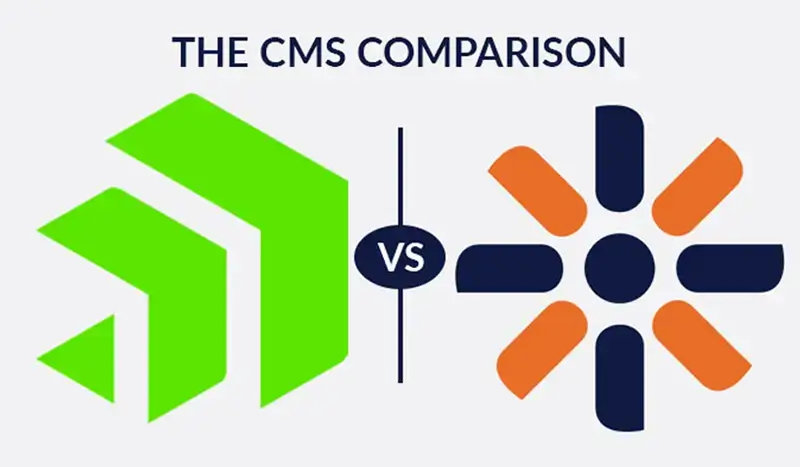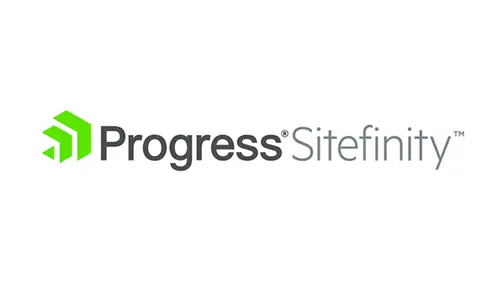Today’s customer basically demands personalised experience with instant delivery of content through the platform they choose. There are so many CMS options in hand to start with but today we will be focusing on two CMS platform basically: Sitefinity vs Kentico.
Which one is better Sitefinity vs Kentico? To compare these two, we just need to see which Content Management Software product is more of an effective option. This will determine your enterprise to choose the most productive and useful application. Before we go any further let us differentiate the meaning of these two CMS platform.
What is the difference between Sitefinity vs Kentico?
Sitefinity – A web content management system which is used to create, store, manage and present content on your website. It’s a CMS software that allows customers to make updates and change to their website without a web developer.
Kentico – It is used for building websites, online stores, intranets, and Web 2.0 community sites. It uses ASP.NET and Microsoft SQL Server for development via its Portal Engine, using Visual Studio, or through Microsoft MVC.
Sitefinity provides the following key features: –
- Web Content Management
- Customer engagement, conversion and retention
- Content creation and management
Some of the features offered by Kentico: –
- MVC Page Builder
- WYSIWYG Editor
- Multilingual Content
Let just enlighten on the Pro and Cons of the both CMS platform.
Pros and Cons: Sitefinity vs Kentico
Sitefinity
Pros
- It makes easy for an administrator to assign roles for others in the organization to contribute content.
- It is also quite easy for administrators to know when new content has been created and is ready to be reviewed and approved.
- Sitefinity CMS’s licensed model makes it very affordable for a small and medium-sized business to adopt the platform.
- They always continue to update the platform with new features.
Cons
- Well, it doesn’t go well with Chrome. Some vendor only uses chrome as their default browser, but there are so many things that don’t work in Chrome that are no longer been used.
- Sitefinity doesn’t have an in-text editor. On small updates, it would be nice to click an edit button on a page and either fix it right there or at least use that button to open that page in Sitefinity.
- Everybody hates when they are editing a page, finish, and go back into the Pages menu and the menu that they were working on is closed, or a different one is open. It’s kind of frustrating.
Kentico
Pros
- The intuitive top is quite intriguing and left navigation within the content management platform. Anyone can easily find what section, sub-section, and the page they are looking to edit.
- For creating content, the WYSIWYG editor is so intuitive which gives a feeling like working in MS Word.
- The tab for adding metadata in simple fields takes away the headache of having to hunt and peck through code to add H1 tag, page description etc.
- The image library is easy to edit and manage.
Cons
- Kentico needs to invest in more enterprise-class environment management utilities.
- The Kentico staging module could be improved to support the concept of bundled releases. Current staging module functionality is good but could be improved.
- Kentico e-commerce support is a touch immature. While content management is superb but lags when compared to many open source e-commerce engines.
- Kentico lacks MVC support. 99% of the time this isn’t an issue for the end-user or business user but can be a hurdle for technology teams depending on the team’s makeup.
Conclusion of the comparison: Sitefinity vs Kentico
Sitefinity
Pros
- It makes easy for an administrator to assign roles for others in the organization to contribute content.
- It is also quite easy for administrators to know when new content has been created and is ready to be reviewed and approved.
- Sitefinity CMS’s licensed model makes it very affordable for a small and medium-sized business to adopt the platform.
- They always continue to update the platform with new features.
Cons
- Well, it doesn’t go well with Chrome. Some vendor only uses chrome as their default browser, but there are so many things that don’t work in Chrome that are no longer been used.
- Sitefinity doesn’t have an in-text editor. On small updates, it would be nice to click an edit button on a page and either fix it right there or at least use that button to open that page in Sitefinity.
- Everybody hates when they are editing a page, finish, and go back into the Pages menu and the menu that they were working on is closed, or a different one is open. It’s kind of frustrating.
Kentico
Pros
- The intuitive top is quite intriguing and left navigation within the content management platform. Anyone can easily find what section, sub-section, and the page they are looking to edit.
- For creating content, the WYSIWYG editor is so intuitive which gives a feeling like working in MS Word.
- The tab for adding metadata in simple fields takes away the headache of having to hunt and peck through code to add H1 tag, page description etc.
- The image library is easy to edit and manage.
Cons
- Kentico needs to invest in more enterprise-class environment management utilities.
- The Kentico staging module could be improved to support the concept of bundled releases. Current staging module functionality is good but could be improved.
- Kentico e-commerce support is a touch immature. While content management is superb but lags when compared to many open source e-commerce engines.
- Kentico lacks MVC support. 99% of the time this isn’t an issue for the end-user or business user but can be a hurdle for technology teams depending on the team’s makeup.
Conclusion of the comparison: Sitefinity vs Kentico
Taking all into consideration of all the above factors, can anyone conclusively assert which software package has the advantage in the comparison between Sitefinity vs Kentico? Although one of them may scores moderately better than the other but enterprise software implementation can be affected by other factors than just functionality. Our experience tells us that this conclusion starts to blur quite a bit as a company’s project priorities, constraints, and costs are factored in. The above factors hopefully outline some areas that potential buyers can use to scrutinize their software options. In the end, it all depends on the customer on which platform they want to build their website.
And lastly, if you are interested in getting acquainted with Sitefinity Hosting then you can contact us. We have some of the best Sitefinity developers in India if you need more information on Sitefinity Web Services or performance improvement initiatives on existing Sitefinity portals or Sitefinity Upgrade, do reach out to us on – info@oditeksolutions.com







